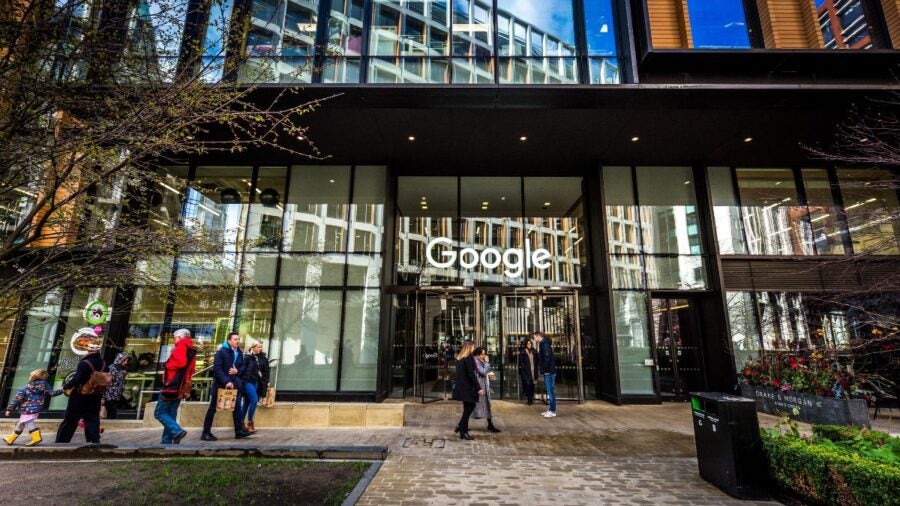
How would you feel if your business made your attendance in the office part of your performance review? Would it provide you with the incentive to finally turn your back on the comforts of home working or would it push you to hand in your notice?
That is the question which employees at Google are now having to answer. In an internal memo last week, its chief people officer Fiona Cicconi told staff that it will now consider attendance records in any future performance reviews, as it looks to force staff to come into the office at least three times a week.
The return-to-the-office pull started slowly, with employers offering incentives such as more frequent socials or subsidised commuting costs to lure people back to their desks. But even at Google the promise of free food and electric scooter rides for US workers failed to have the desired effect. As the city centre office blocks remained half empty, businesses had to become more creative.
Last week, Salesforce attempted to appeal to staff’s charitable nature by pledging to donate $10 (£8) to a charity of the employee’s choice for each day they are in the office between 12 and 23 June, according to a report in Fortune. Elsewhere, L’Oréal is offering its workers a personal concierge service for those who make the daily commute, enabling them to get their cars refuelled or laundry done while they’re at their desks.
But with many staff members still reluctant to move to more office working, Google is among a growing group of businesses moving from using the carrot to implementing the stick. To monitor attendance, it will be tracking staff badges to see when people scan in and out of buildings (although it maintains all data collected in this manner will be “aggregated”). Many of those who work at Google have deemed the policy harsh and unfair, others have said the tracking of attendance is an invasion of privacy, while others have decried a culture focused on presenteeism rather than productivity.
But the US technology firm is certainly not the first to use this tactic (the law firm Davis Polk & Wardwell LLP informed staff last month that fewer days in the office would result in lower bonuses). And it won’t be the last.
And even at businesses that haven’t come out and said they will link performance and office attendance, that is the direction of travel at many companies. The truth is that many businesses want staff back in, whether for productivity or collaboration or to improve company culture. And employees need to understand this.
The need to be back in the office goes beyond policies such as those at Google. Research has found, time and again that, whether they’re aware of it or not, managers are far more likely to put people forward for pay rises and opportunities for career progression if they have a strong relationship with them. A Harvard Business Review survey found that employees who build solid relationships with their seniors were 82% more likely to get promoted compared to their colleagues.
And despite all the advantages of working from home, it remains the case that, for the most part, it is easier to form strong working relationships with other people if you see them in person. And although they may not be saying it out loud, many managers are already taking office appearances into consideration when it comes to deciding promotions. In a global survey by office design agency Unispace, 84% of employers agreed that the chance of career progression will be limited for those employees who are not in the office. In contrast, only 67% of employees believed the statement to be true.
This clear disparity between the thinking of employers and employees means that many home workers will be caught off guard when they suddenly find their career progression stymied. Rather than being unfair, Google is simply being more honest with its employees than other companies are willing to be.
There will inevitably be some staff who continue to value the autonomy of home working over pay. However, according to some surveys, as many as 58% of employees would be willing to go into the office more frequently if it meant receiving a bigger salary. With a cost-of-living crisis in full effect, it would not be surprising if this proportion increased further.
Although Google’s attendance monitoring may seem harsh at first glance, it is simply making clear in its procedures what many companies are already doing. The power is now firmly back with employers and this could mean that the short-lived thrill of being able to work from home is slowly coming to an end.
The choice is down to employees: do you hunker down at home and risk being overlooked for that next promotion, or do you embrace the office return?

How would you feel if your business made your attendance in the office part of your performance review? Would it provide you with the incentive to finally turn your back on the comforts of home working or would it push you to hand in your notice?
That is the question which employees at Google are now having to answer. In an internal memo last week, its chief people officer Fiona Cicconi told staff that it will now consider attendance records in any future performance reviews, as it looks to force staff to come into the office at least three times a week.
The return-to-the-office pull started slowly, with employers offering incentives such as more frequent socials or subsidised commuting costs to lure people back to their desks. But even at Google the promise of free food and electric scooter rides for US workers failed to have the desired effect. As the city centre office blocks remained half empty, businesses had to become more creative.





